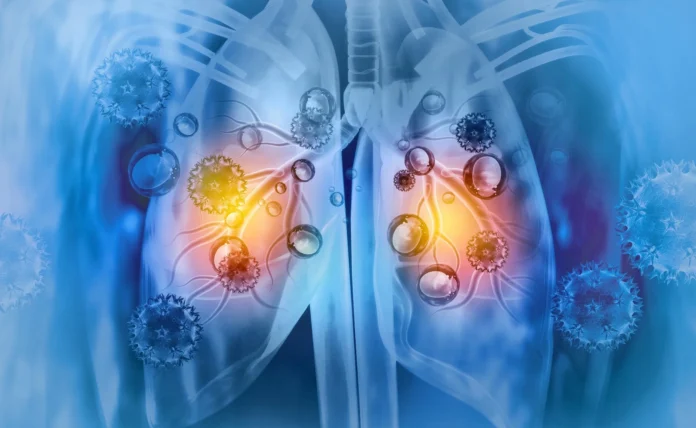A major new study, published in the journal JAMA, may explain the unusual rise in cancer metastasis during the COVID-19 pandemic. The research, conducted by British and American scientists, showed that viral infections like the flu and SARS-CoV-2 could potentially awaken dormant tumor cells.
The idea for the study came to Professor Hugh Montgomery, a professor of intensive care medicine at University College London, after his sister, who was in remission following treatment for breast cancer, died of cancer a few months after being infected with COVID-19.
Montgomery and his colleagues noticed a sharp increase in the number of patients presenting with advanced forms of cancer during the pandemic. Although this was generally attributed to delays in screening and treatment, the professor found this explanation unconvincing.
The scientists conducted the research based on both animal models and epidemiological data.
Experiments on mice showed that dormant breast cancer cells in the lungs were activated within days of infection with the flu virus or SARS-CoV-2, developing into metastatic lesions within two weeks.
Analysis of human data, which included the UK Biobank and Flatiron Health databases, confirmed this link. Patients in remission who were diagnosed with COVID-19 were at an almost two-fold greater risk of cancer-related mortality than those who were not infected. Among women in remission from breast cancer, the risk of developing lung metastases was also increased after COVID-19.
The researchers hypothesize that this effect is caused by the inflammatory response triggered by the viral infection.
Experiments in mice revealed that the cytokine interleukin-6 (IL-6) plays a key role in activating dormant tumor cells. This inflammatory mediator, which helps the body fight off viruses, promotes the proliferation of tumor cells and the formation of metastases in the presence of cancer cells.
Professor James DeGregori notes that this process involves the awakening of pre-existing, dormant tumor cells through inflammatory processes.
Although the study primarily focused on COVID-19 and the flu, the scientists suggest that the link may apply to any acute viral infection that causes severe inflammation.
The study’s authors stress that people in remission from cancer should take every possible measure to prevent infection. Professor Montgomery adds that while it is an individual decision, it is important to realize that acute infections can have long-term consequences for cancer patients.


